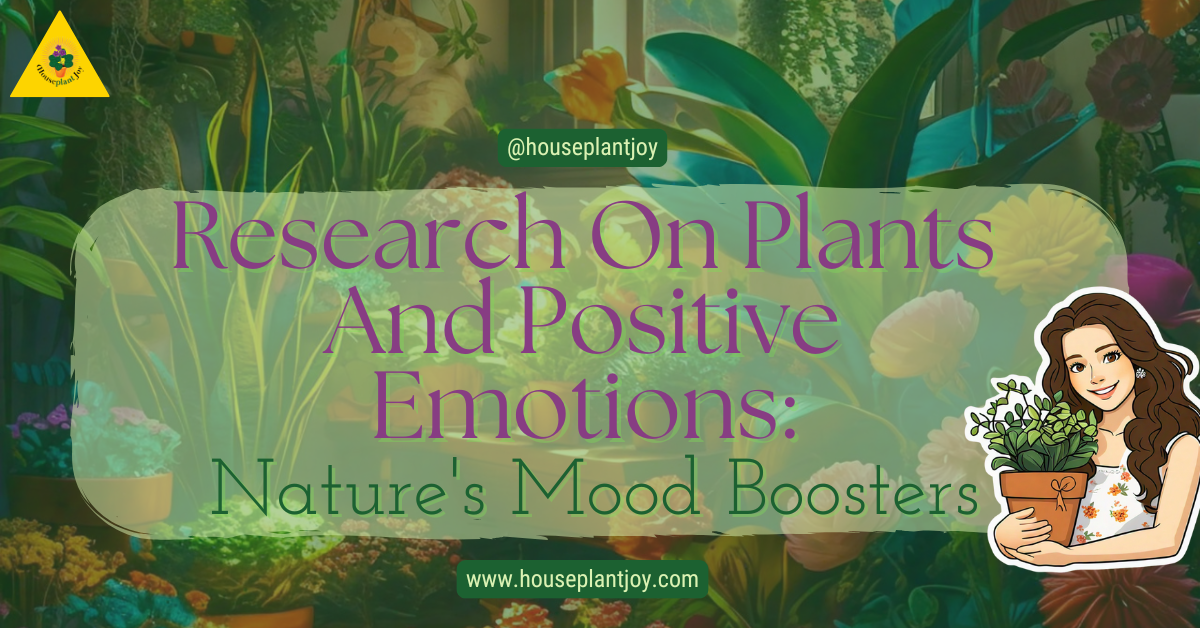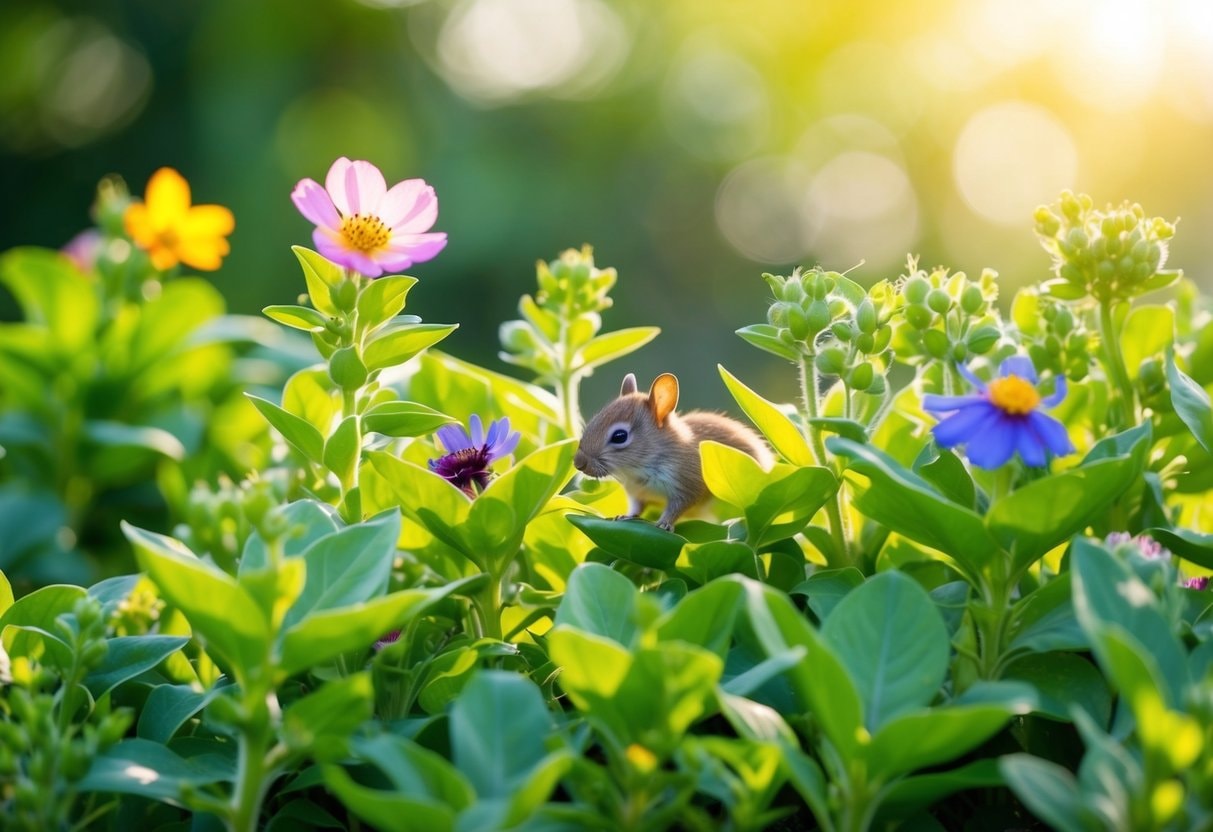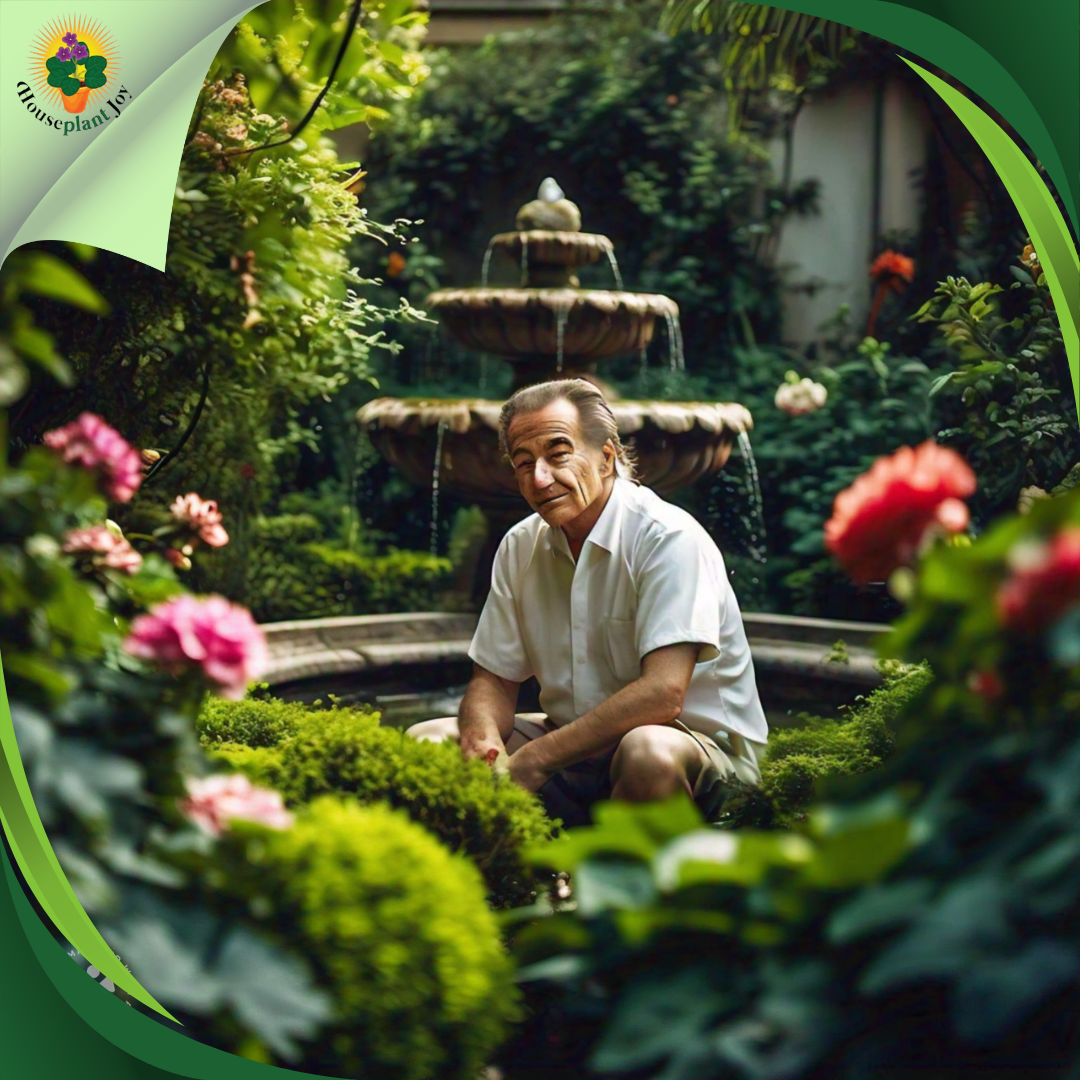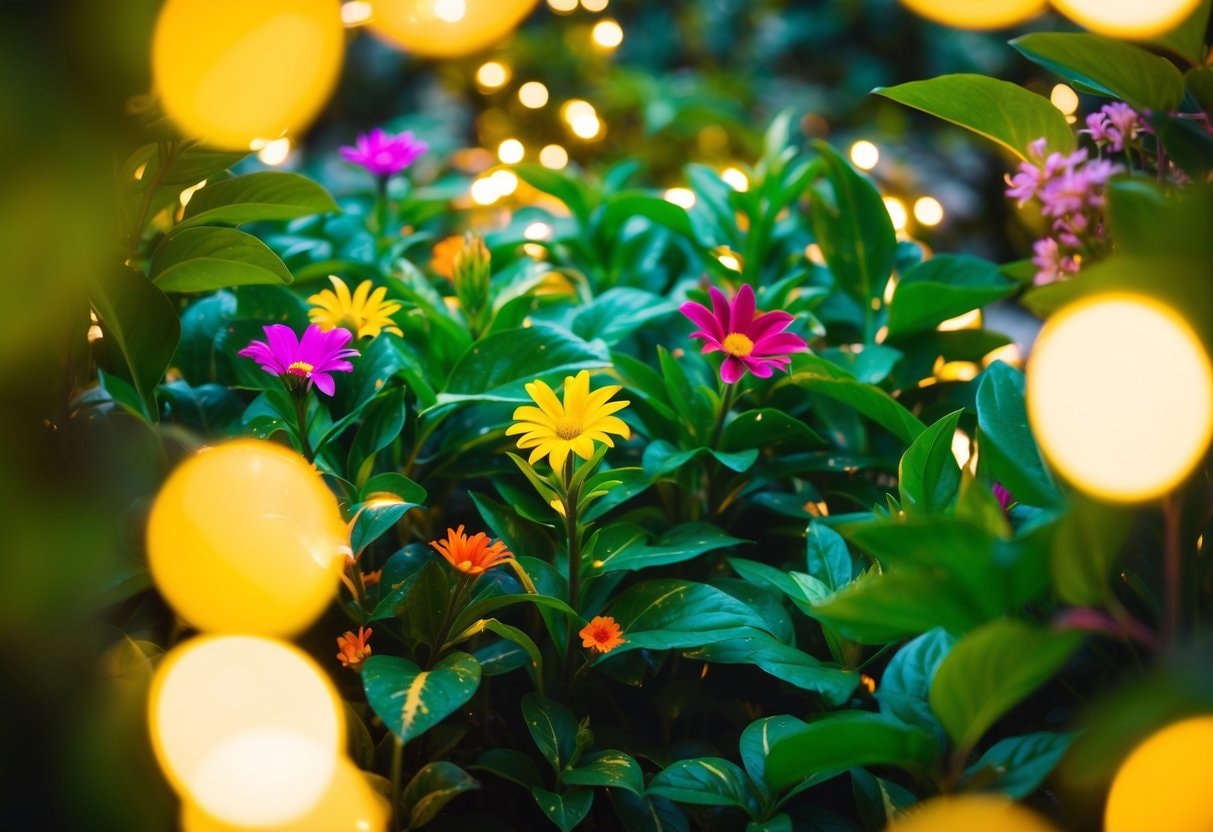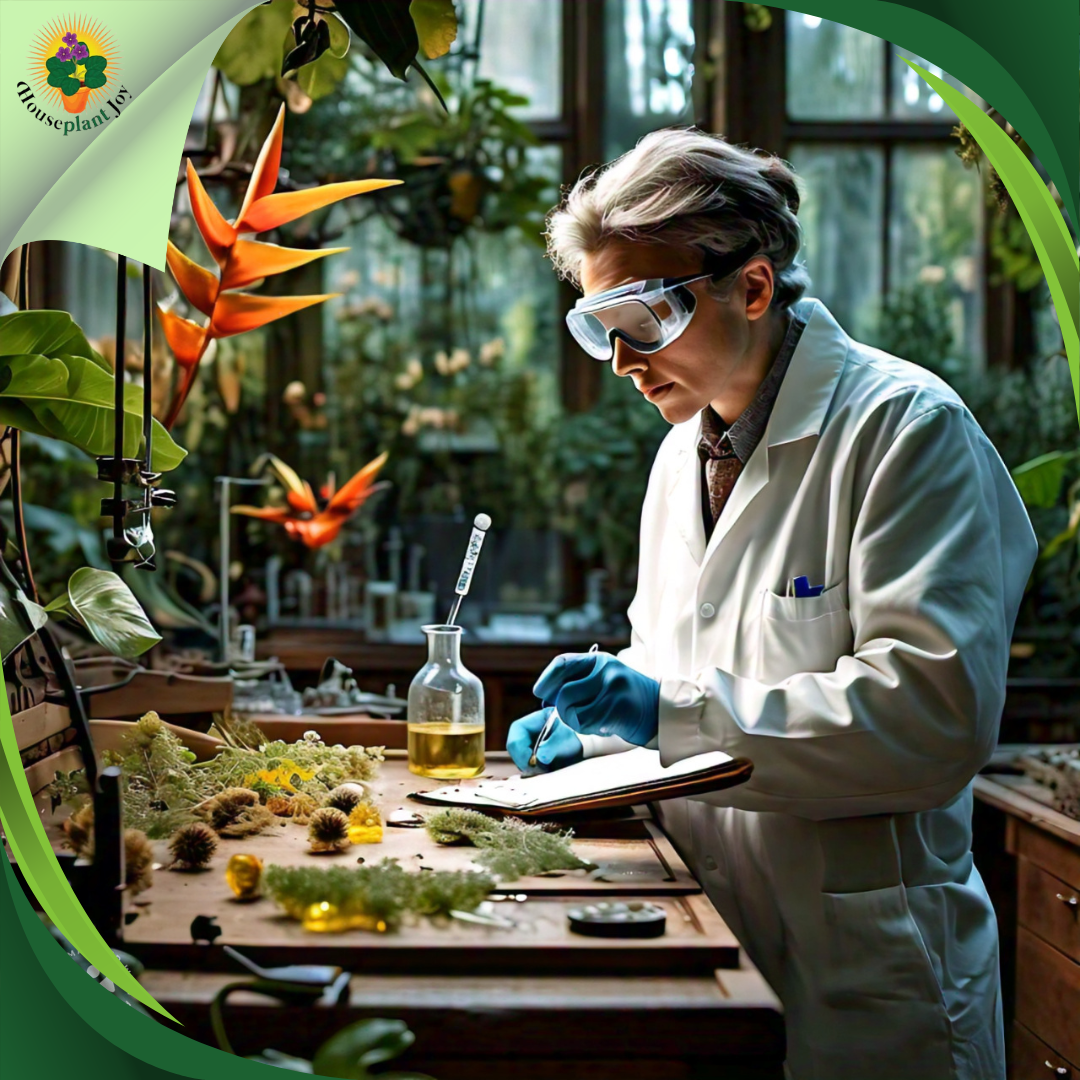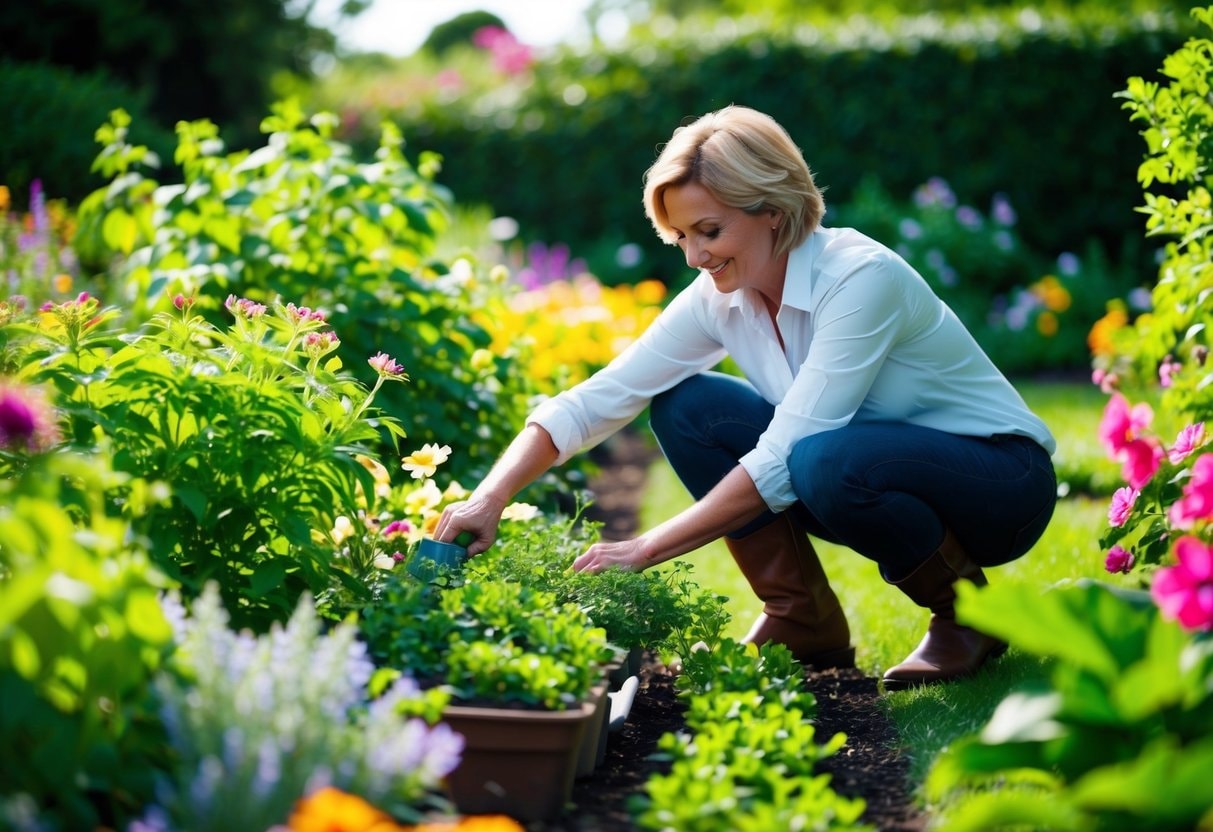HousePlantJoy is supported by our audience. When you purchase through one of our links, we may earn a small affiliate commission. As an Amazon Associate I earn from qualifying purchases. Your cost is not affected.
==================
Research on plants and positive emotions has revealed how much nature can influence our well-being. From the calming presence of greenery to the mood-boosting effects of caring for a houseplant, the connection between plants and mental health is undeniable. Whether it’s a simple potted plant on your desk or a lush garden in your backyard, the benefits extend far beyond aesthetics. Studies show that spending time with plants or just being near them can reduce stress, elevate your mood, and promote peace.
This article explores the science behind nature’s ability to uplift our spirits, offering insight into why plants make us feel so good. We’ll dive into how plants interact with our emotions and how you can harness this power to improve your mental health. If you’ve ever wondered why being around plants makes you feel happier or more relaxed, you’re about to discover the answers.
How Plants Enhance Emotional Well-Being: The Science Behind Nature’s Mood Lifters
Research on Plants and Positive Emotions has shown that plants have a special way of making us feel good. They bring color and life to our spaces, and research shows they can boost our mood, too. Studies focused on Research on Plants and Positive Emotions have found that being around plants can increase positive emotions and reduce stress. You might notice how a bouquet can brighten your day or how tending to a garden can calm your mind.
This isn’t just your imagination. Scientists have discovered that flowers can trigger true smiles and positively affect our emotions. Indoor plants can also work wonders for your well-being. They can help you feel less anxious and more satisfied with life. Even during tough times like the COVID-19 pandemic, green plants have helped people cope with stress.
Key Takeaways
- Plants can boost positive emotions and reduce stress.
- Flowers have been shown to trigger genuine smiles and improve mood.
The Connection between Plants and Emotional Well-Being
Research on plants and positive emotions shows that plants have a powerful effect on your emotions and mental state. They can lift your mood and help you feel calmer and happier. Let’s explore how research on plants and positive emotions reveals their impact on your outdoor and indoor well-being.
Psychological Effects of Green Spaces
Being around plants in nature can boost your mood. Spending time in green spaces may make you feel less stressed and anxious. A walk in the park or garden can help clear your mind and improve your outlook. Studies show that green spaces increase positive emotions and well-being.
You might feel more relaxed and content after spending time outdoors among plants and trees. Green areas also help you connect with others. Community gardens let you socialize while enjoying nature. This can fight loneliness and boost your spirits.
Role of Indoor Plants in Enhancing Mood
Bringing plants into your home or office can brighten your day. Indoor plants may help reduce stress and increase your productivity. They add life and color to your space, making it more welcoming. Caring for plants can give you a sense of purpose and accomplishment.
Watching them grow and thrive under your care can be very rewarding. This can boost your self-esteem and mood. Some plants, like lavender, may even help you sleep better. Better sleep leads to improved emotional health. Try placing a few plants in your bedroom to create a calm, soothing environment.
Health Benefits Associated with Plant-Interactions
Plants can boost your mood and health in many ways. They help you relax, feel better mentally, and improve your body’s functions.
Stress Reduction and Relaxation
Being around plants can make you feel calmer, as research on plants and positive emotions suggests. Studies show that just looking at greenery lowers stress. When you touch or care for plants, it helps even more. Try keeping a small plant on your desk. Water it and watch it grow. This simple act can ease your mind during a busy day. Some plants, like lavender, give off nice smells. Research on plants and positive emotions highlights how these scents can help you relax. Put a pot of lavender in your bedroom to help you sleep better.
Improvements in Mental Health
Plants can lift your spirits when you’re feeling down. Research finds that having plants around can make you happier and less anxious. Gardening is a great way to boost your mood. It gets you moving and gives you a sense of purpose. You might feel proud when you grow your veggies or flowers. Indoor plants can help, too. They make rooms feel cozier and more alive. This can help you feel less lonely or sad.
Heart Rate Variability and Physical Health
Plants don’t just help your mind – they’re good for your body, too. Studies have found that being near plants can improve your heart health. Your heart rate variability (HRV) is a sign of good health. Higher HRV means your body handles stress better.
Being around plants can increase your HRV. Plants also clean the air you breathe. They remove harmful chemicals from indoor spaces. This can help you breathe easier and feel more energetic.
Psychological Theories on Plants and Emotions
Research on Plants and Positive Emotions shows that plants can make you feel good in many ways. Scientists have developed theories to explain why being around nature lifts your mood and helps you relax. Let’s examine some key ideas from this research about how plants affect emotions.
Attention Restoration Theory
This theory says nature helps your brain recover from mental fatigue. When you’re tired from focusing hard, looking at plants can give your mind a break. Natural settings don’t demand your attention in the same way as work or busy city life. Plants offer “soft fascination” – they’re interesting but not overwhelming.
This gentle stimulation lets your mind wander and recharge. It’s like a mental reset button. You might feel more alert and focused after spending time in a garden or park. That’s attention restoration at work!
Stress Recovery Theory
This idea explains how nature helps your body and mind recover from stress. Being around plants can quickly lower your stress levels. Your heart rate slows, your muscles relax, and you feel calmer. Plants trigger positive feelings that push out negative emotions.
The sights, sounds, and smells of nature all play a part in making you feel better. Even looking at pictures of plants or nature scenes can help reduce stress. It’s a powerful effect that works fast to improve your mood.
Biophilia and Human-Nature Connection
Biophilia means “love of life.” This theory suggests humans have a built-in need to connect with nature. You’re naturally drawn to plants and green spaces because they are part of your identity. Throughout history, humans lived closely with nature. Your brain is still wired to respond positively to natural settings.
Being around plants can satisfy this deep need for natural contact. Indoor plants are one way to bring nature into your daily life. They can boost your mood and make you feel more connected to the world.
Influence of Plants on Cognitive Functions
Plants can boost your brain power in surprising ways. They help you think better, remember more, and develop fresh ideas.
Impact on Attention and Concentration
Having plants around you can help you focus. Studies show that being near nature improves your attention. This is great news if you often feel distracted. When you work or study with plants nearby, you might find it easier to stay on task. Plants can calm your mind and reduce stress.
This lets you concentrate better on what you’re doing. Try putting a small plant on your desk. You might notice you can work longer without getting tired. Plants can also help if you have trouble paying attention. They give your brain a gentle, natural boost.
Influence on Creativity and Productivity
Plants can spark your creativity and help you get more done. When you’re around nature, your mind can develop new ideas. Gardening activities can boost your well-being. This happy mood can lead to more creative thinking. You might solve problems in fresh ways or think of exciting new projects.
Having plants in your workspace can also make you more productive. You might finish tasks faster and with fewer mistakes. Try adding some green to your room and see how it affects your work. You could become a creative powerhouse with nature as your partner.
Did you Know?
Here’s a fun fact: walking in a garden can improve your memory. Even looking at pictures of nature can help. Your brain feels refreshed and can hold onto information longer. Try studying in a park or by a window with a view of trees. You might find it easier to remember what you learn. Plants can be like a natural memory booster for your brain.
Research on Plants and Positive Emotions: Environmental and Climate Considerations
Plants play a big role in our world’s climate and the places we live. They affect how we feel and how healthy our cities are. Let’s look at how plants in cities and changing weather impact our well-being.
Plants in Urban Green Spaces
You might notice parks and gardens make cities nicer. These green spaces help clean the air you breathe. They also give you places to relax and enjoy nature. Urban green spaces with many plants can lower the temperature in hot cities. This makes summer days more comfortable for you.
Trees and bushes also soak up rain, which helps stop flooding on streets. Spending time in these green areas may make you feel happier and less stressed. Even small patches of plants on roofs or walls can boost your mood as you walk by.
Impact of Climate on Plant-Related Well-being
Climate change affects the plants around you, which can change how you feel. Warmer weather might make some plants grow faster, giving you more green to enjoy. But it can also harm other plants you like. Extreme weather can damage parks and gardens. This might mean fewer nice outdoor spaces for you to visit. Droughts can make plants dry up, changing how your favorite green spots look and feel.
You might notice some plants blooming earlier or later than usual. This can affect when you see pretty flowers or autumn colors. Changes in rainfall can also impact which plants grow well where you live. To keep enjoying the benefits of plants, you can help by taking care of green spaces in your area. This helps both you and the environment stay healthy.
Comfort and Stress Alleviation
Plants can make you feel more at ease. When you see green spaces, your stress levels may drop. This is part of the stress recovery theory. Being around plants might lower your blood pressure. Your heart rate may slow down, too. These changes can help you relax.
Trees with wide canopies are especially good at making people feel calm. This shape reminds us of safe places from long ago. Even looking at pictures of nature can help. Your brain reacts positively to images of plants and green spaces.
The Role of Flowers in Emotional Health
Flowers can boost your mood. Their colors and shapes can make you feel happy and less worried. Different flower colors can affect you in unique ways. For example, green plants might make you feel more positive than other colors. Flower scents can also change how you feel. Some smells might remind you of good times and make you smile.
Having flowers in your home or office can improve your emotional health. They can make spaces feel more welcoming and pleasant. Research shows that flowers can help people recover from stress faster. They might even help you sleep better at night.
Enhancing Life Satisfaction and Quality of Life
Having plants around can boost your happiness. Studies show that being near nature and plants can make you feel good inside and out. Your brain waves, heart rate, and skin can show positive changes when you’re around greenery.
Plants can help you feel calmer and less stressed. When you take care of plants, it can give you a sense of purpose. This can make you feel more satisfied with your life. Flowers are especially good at lifting your spirits. Their colors and scents can promote positive emotions. Just looking at flowers might make you smile and feel more cheerful.
Contribution to a Healthy City and Community
Plants don’t just help you – they can make your whole neighborhood better. Community gardens are a great example of this. They bring people together and create green spaces for everyone to enjoy. When you garden with others, you can:
- Meet new friends.
- Learn new skills.
- Get fresh air and exercise.
- Grow healthy food.
These activities can boost community well-being. They help create stronger social bonds between neighbors. Green spaces in cities can make everyone healthier. Parks and tree-lined streets give people places to relax and play. This can lead to less stress and better mental health for the whole community.
Systematic Review of Horticultural Therapy
Horticultural therapy programs can help you feel better. These programs use gardening to improve health. A review of many studies found that:
- Gardening lowers stress.
- It builds social connections.
- You’ll likely feel happier after gardening.
The quality of this research is good. It looks at real people in real gardens. You can trust these findings because they come from careful study.
Analysis of Empirical Studies and Meta-Analyses
Scientific reviews show gardening helps your mind and body. They looked at lots of studies to find the big picture. Here’s what you need to know:
- Gardening boosts well-being scores.
- It can improve your quality of life.
- Your mental health may get better, too.
These results come from combining many studies. This makes the findings stronger. You can feel confident that gardening does help people feel good.
Adaptations to Indoor Plant Arrangements
During lockdowns, you probably spent more time at home. This led to new ways of arranging indoor plants. You might have created plant-filled workspaces to boost your mood while working remotely. Many people tried vertical gardening to save space. Hanging plants and wall-mounted planters became popular.
You may have noticed friends sharing photos of their “plant corners” on social media. Some folks got creative with plant care routines. They used this time to learn about proper watering and light needs. You might have even joined online plant care communities to share tips.
Shift in Public Perception Post-COVID-19
After the pandemic, you likely saw a change in how people view plants. Many now see them as more than just decor. Plants became partners in well-being and stress relief. You might have noticed more people talking about the mental health benefits of gardening. Growing herbs or vegetables at home became a way to connect with nature and food sources.
Public spaces started adding more greenery, too. Parks and green areas gained new appreciation as safe outdoor gathering spots. You may have seen new community gardens pop up in your neighborhood. The pandemic highlighted how plants can improve indoor air quality. This led to increased interest in air-purifying plants for homes and offices. You might have bought a few yourself!
Embracing Nature: The Lasting Impact of Plants on Our Emotional Health
Plants can make you feel good. Research shows that being around plants helps your mood and health. You might feel calmer and happier when you spend time in nature or with flowers. Green spaces can be restorative environments that help you relax and recharge. Gardening is a fun way to connect with plants. It gives you exercise and fresh air while boosting your spirits.
Having plants at home or work can improve your well-being. They clean the air and create a peaceful atmosphere. This may help with stress and mood disorders. Even looking at pictures of nature can have positive effects. Your brain responds well to green scenes. This can lift your psychological state and make you feel more positive.
Try adding some plants to your life. Put a small plant on your desk or tend a garden. You might be surprised how much better you feel. Plants are natural mood boosters that can enhance your daily life in simple but powerful ways.
How Do Indoor Plants Contribute to Mental Health Improvement?
Plants may help filter air and increase oxygen levels indoors. This can improve air quality, which may help you feel more alert and energized.
What is the Impact of Plants on Stress Reduction?
Can the Presence of Plants in the Workplace Enhance Emotional Well-being?
Join Us and Cultivate Plants Together
Unlock Exclusive Insights: Gain vital tips that will help your plants flourish and thrive like never before.
Assistance from Professionals: Connect with our knowledgeable team on social media platforms such as Facebook and Twitter. Our gardening experts are eager to support you on your plant journey.
Network with Fellow Plant Lovers: Join other plant aficionados, exchange your stories, and cultivate a nurturing community. Sign up today! Follow Houseplant Joy on Facebook, Instagram, and Twitter for daily motivation and to enhance your plant experience! #HouseplantJoy #GreenThumbsUnite #HouseplantLove

